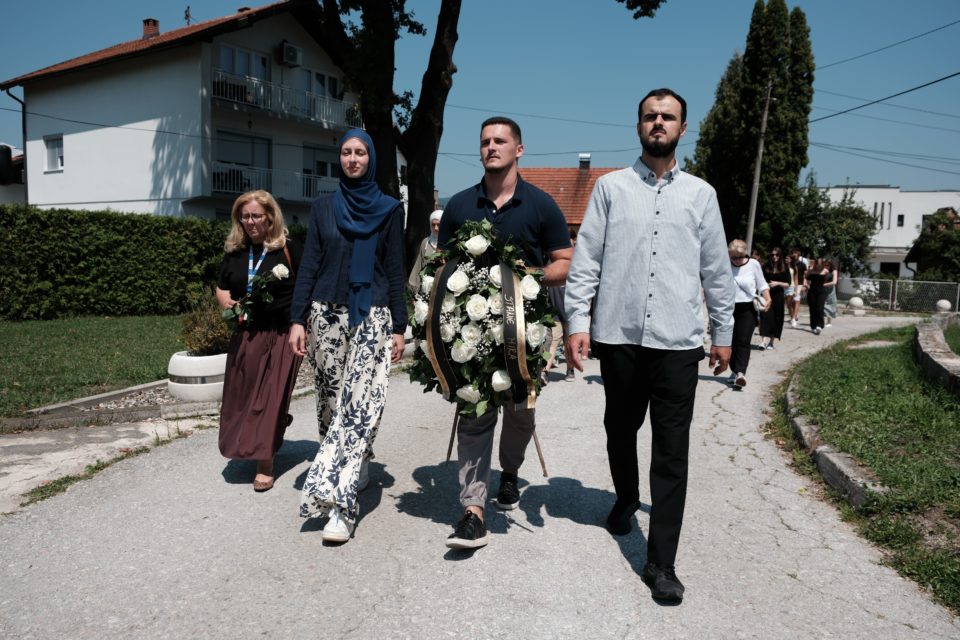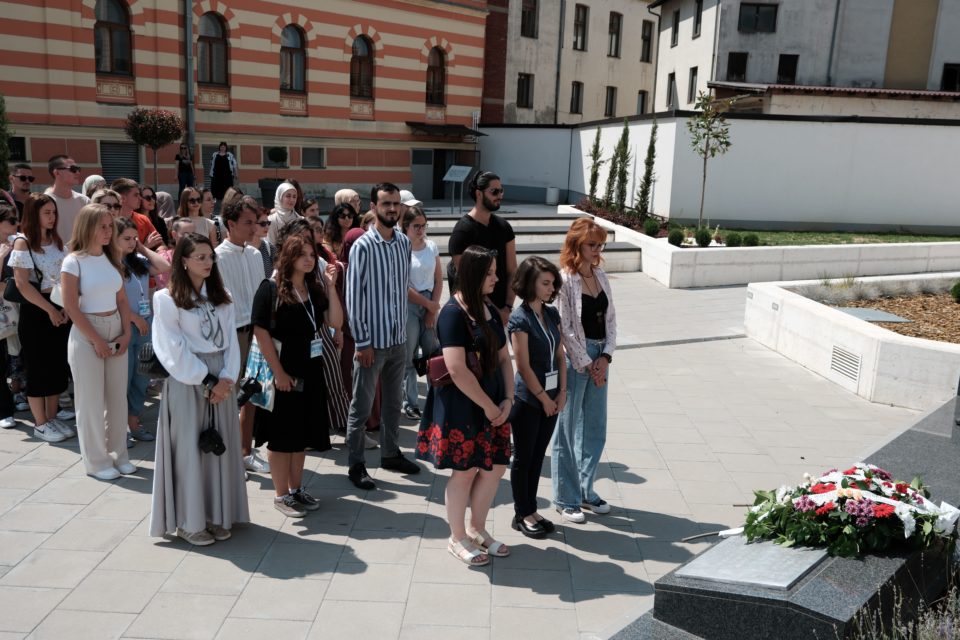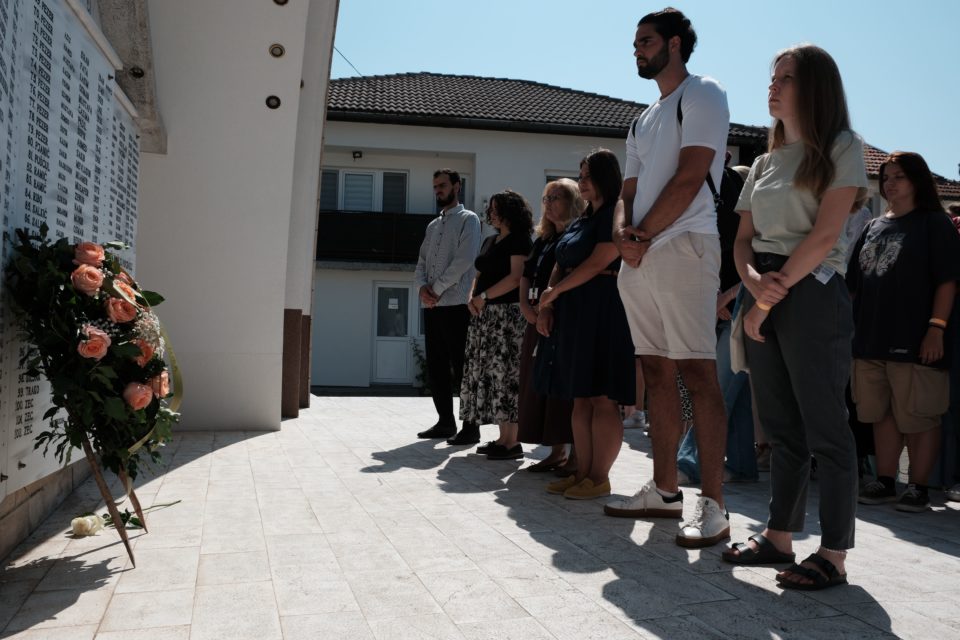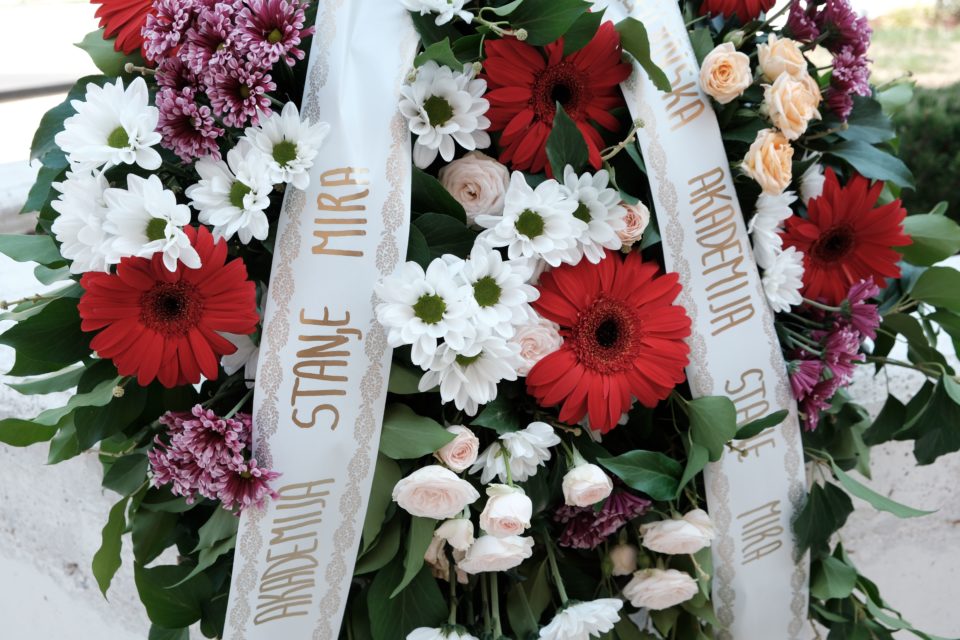
Paying respect to victims of war crimes, regardless of ethnicity or nationality, and acknowledging established facts about the conflicts of the 1990s is crucial for building coexistence, tolerance, and peace in the Western Balkans.
This message resonated strongly among young people from across the region who recently visited memorial sites in Bosnia and Herzegovina, as part of the youth summer program State of Peace, organized by the European Union in BiH, in cooperation with the Post-Conflict Research Center
During their journey, participants reflected on how confronting the past can break down divisions that persist even decades after the wars. Many emphasized that victims should never be seen through the lens of ethnic identity, but rather as human beings whose suffering deserves equal recognition.

Silvia Fabijančić from Zadar, Croatia, explained that visiting memorial sites helped her develop empathy and deepen her understanding of both history and the importance of tolerance. “We need to stop dividing victims into ‘ours’ and ‘theirs,’ because doing so diminishes the weight of crimes, prolongs the pain, and makes reconciliation harder,” she said.
From Sarajevo, Bosnia and Herzegovina, Aldemar Memić agreed, stressing the importance of including facts about the wars in school curricula. He argued that young people must learn about crimes committed on all sides to prevent hatred from being passed down and to ensure such violence is never repeated.
Others highlighted how limited access to accurate information continues to shape perceptions. Dalila Šabović from Podgorica, Montenegro, admitted she had not previously known about the Tuzla massacre. “It shocked me to hear what happened there. Even though it’s close, in a neighboring country, I wasn’t fully aware until I came here,” she said. For her, facing these truths is an essential step toward creating a better future and peaceful coexistence.

The importance of shared remembrance was also emphasized by young people from Serbia. Aleksa Nikolić from Niš noted that peace is not something given, but actively built, that the aspects which make us different should bring us together in order to create a better future for all without divisions.
Religious leaders and locals, with whom the group met, echoed similar sentiments. Imam Mahir Husić from Ahmići Memorial near Vitez underlined that every innocent life lost deserves to be documented, condemned, and remembered—regardless of religion or nationality. At the Osmica memorial in Vitez, survivor Ivan Garić expressed gratitude that young people came to pay their respects, urging them not to fall for political or media distortions about the 1990s.

Researchers and activists also see hope in the engagement of a new generation. Croatian activist Branka Vierda called programs that bring young people to memorials “a sign that, even though they were not born during the wars, many are deeply aware of their consequences and determined to prevent repetition.” She even suggested such initiatives should be part of formal education.
The broader challenge of how societies commemorate victims was also raised. Tatjana Milovanović from the Post-Conflict Research Center noted that the Brčko memorial for all civilian victims of war, as one of the first monuments in Bosnia and Herzegovina dedicated to victims of all backgrounds is a key step toward reducing divisions. She advocates for a state-level law on memorialization to ensure equal recognition for all victims. “Truth and multiple perspectives are not a threat,” she said. “They are the foundation of reconciliation and shared life.”

This collective reflection was part of a two-week Youth Academy “State of Peace,” organized by the European Union in Bosnia and Herzegovina, in cooperation with the Post-Conflict Research Center that brought together 50 young people from Bosnia and Herzegovina, Croatia, Serbia, and Montenegro. Through visits to 7 different towns and municipalities in BiH participants honored victims and engaged in dialogue about memory, responsibility, and the work required to build lasting peace in the region.





